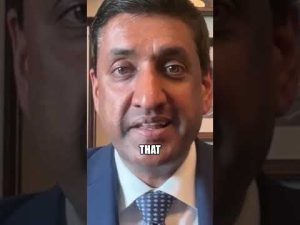In the realm of American politics, the age of our leaders has become a topic buzzing with intrigue and tension. Recently, a prominent figure highlighted the reluctance of older Democrats to relinquish their positions of power, prompting a broader conversation about the implications of age in leadership roles. This discussion raises essential questions about the health, effectiveness, and future of the Democratic Party.
It is undeniably true that many individuals lead vibrant lives well into their later years. Historical figures like John Paul Stevens prove that retirement does not signify the end of influence or effectiveness; in fact, Stevens continued to shape discourse well into his 90s. However, this argument does not apply uniformly to all. Politics is a demanding arena that requires not only mental acuity but also the physical stamina to endure the rigors of public office. As leaders confront the challenges of governance, the question must be asked: Are older politicians as equipped as their younger counterparts to navigate today’s complex political landscape?
Consider the Democrats, who seem reluctant to acknowledge the demographic realities within their ranks. The party is heading into an election cycle marked by internal strife, with a generational divide emerging among its members. Younger politicians call for fresh ideas and renewed energy, while their older counterparts remain steadfast, perhaps too comfortable in their positions. This resistant attitude could lead to a significant internal conflict, one that may hinder the party’s ability to connect with the electorate, which increasingly desires representation that mirrors its youthfulness and vigor.
As amusing as it may be to envision a political wrestling match between generations, the stakes are serious. The longer older leaders cling to power, the higher the risk they take—not just for themselves but for their party’s future. If the Democratic Party wishes to remain viable and relevant, it must embrace a more dynamic approach to leadership. This means recognizing that while experience is undoubtedly valuable, fresh perspectives are necessary to tap into the pulse of today’s society.
In conclusion, while aging leaders may hesitate to step aside due to fears of mortality and loss of purpose, the reality is that political life demands a certain level of vitality that declining age may impede. The Democrats must confront this uncomfortable truth if they wish to avoid a battle that could fracture their base. It’s time for a proactive transition strategy, one that invites younger voices while respecting the wisdom of age. It may be a tough pill to swallow, but in the game of politics, resilience and flexibility may just be the winning cards.







